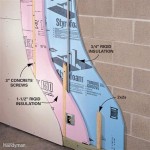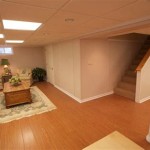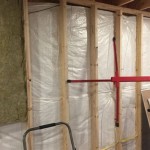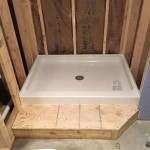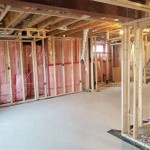What Should a Dehumidifier Be Set On in a Basement?
A dehumidifier is an essential appliance for maintaining a healthy and comfortable environment in a basement. Basements are prone to high humidity levels, which can lead to various problems, including mold growth, mildew, musty odors, and damage to building materials. To effectively combat these issues, it's crucial to understand the optimal humidity settings for your basement dehumidifier.
The ideal humidity level for a basement is generally considered to be between 30% and 50%. This range helps to prevent moisture-related problems while maintaining a comfortable indoor environment. However, the specific setting for your dehumidifier may vary depending on factors such as the size of your basement, the type of dehumidifier, and your personal preferences.
Here are some key points to consider when determining the optimal humidity setting for your basement dehumidifier:
1. Basement Size and Dehumidifier Capacity
The size of your basement plays a significant role in determining the appropriate humidity setting. Larger basements require more powerful dehumidifiers capable of removing more moisture from the air. It's important to choose a dehumidifier with a capacity that matches the size of your basement. A general guideline is to select a dehumidifier that can remove 30 to 40 pints of water per day for every 1,000 square feet of basement space.
For example, a 1,500 square foot basement would require a dehumidifier with a capacity of 45 to 60 pints per day. If you have a smaller dehumidifier, it may not be able to effectively reduce humidity levels in a large basement, even if it is set to a low humidity level. Conversely, a dehumidifier with too much capacity for your basement might run frequently and consume more energy than necessary.
2. Type of Dehumidifier
Dehumidifiers come in various types, each with its own advantages and disadvantages. Some common types include:
- Refrigerant dehumidifiers: These are the most common type and work by cooling the air and condensing the moisture out. They are generally efficient and effective but can be noisy.
- Desiccant dehumidifiers: These use a desiccant material to absorb moisture from the air. They are more effective at low temperatures and are generally quieter than refrigerant dehumidifiers but can be more expensive.
- Thermo-electric dehumidifiers: These use the Peltier effect to cool the air and condense the moisture. They are typically small and energy-efficient but have a lower capacity than refrigerant dehumidifiers.
The type of dehumidifier you choose will affect the optimal humidity setting. Refrigerant dehumidifiers generally have a wider humidity range than desiccant dehumidifiers. It's essential to consult your dehumidifier's manual for specific recommendations on the appropriate humidity setting for your model.
3. Personal Preferences and Health Considerations
While a humidity level between 30% and 50% is generally considered ideal for most basements, some individuals may prefer lower or higher humidity levels based on their personal preferences. However, it's crucial to consider health implications when setting the humidity level.
High humidity levels can contribute to mold growth, which can trigger allergies and respiratory problems. On the other hand, excessively low humidity can lead to dry skin, irritated eyes, and static electricity. It's essential to find a balance that meets both your comfort and health needs.
The optimal humidity setting for your basement dehumidifier may require some trial and error. Start with a setting of 40% and monitor the humidity levels over a few days. Adjust the setting accordingly based on your observations and comfort level. You should also regularly check the dehumidifier's water bucket and empty it when it is full.

Dehumidifier Setting Chart What Should Be Set At

How To Set Your Dehumidifier Ideal Setting Sylvane

What Is The Best Humidity Setting For A Dehumidifier

How To Set Your Dehumidifier Ideal Setting Sylvane

Whole House Dehumidifiers Why You Need One How To Choose The Right Size Acculevel

What Is The Best Basement Dehumidifier Reviews

Should A Dehumidifier Run Constantly 24 7 In Basement All The Time

What Humidity Should I Set My Dehumidifier To

What Size Dehumidifier Do I Need Chart

What Should I Set My Dehumidifier At The Humidistat
See Also

